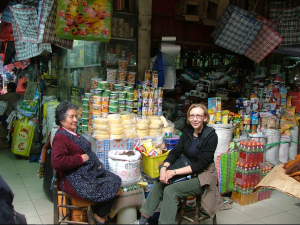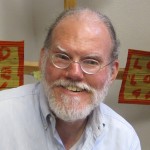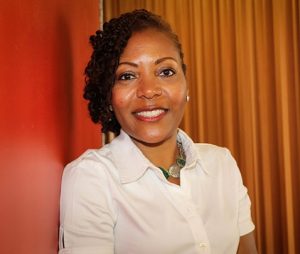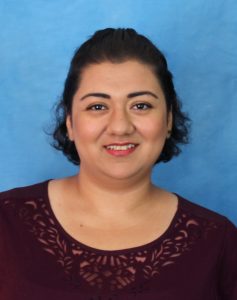Members
Anthropology Faculty
Anna Agbe-Davies
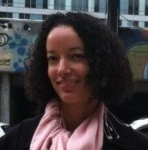 I am an historical archaeologist interested in the plantation societies of the colonial southeastern US and Caribbean, with a particular focus on the African diaspora. My first book examined locally-made clay tobacco pipes from rural and urban sites in and around Jamestown, Virginia as a means to understand the development of a concept of “race” in the early colony. My recent research projects include excavation and community collaboration at the sites of New Philadelphia, Illinois, and the Phyllis Wheatley Home for Girls on the south side of Chicago. In 2014, I started two new projects both in Durham, North Carolina. One is focused on Stagville State Historic Site, the other is at the childhood home of civil rights activist Pauli Murray.
I am an historical archaeologist interested in the plantation societies of the colonial southeastern US and Caribbean, with a particular focus on the African diaspora. My first book examined locally-made clay tobacco pipes from rural and urban sites in and around Jamestown, Virginia as a means to understand the development of a concept of “race” in the early colony. My recent research projects include excavation and community collaboration at the sites of New Philadelphia, Illinois, and the Phyllis Wheatley Home for Girls on the south side of Chicago. In 2014, I started two new projects both in Durham, North Carolina. One is focused on Stagville State Historic Site, the other is at the childhood home of civil rights activist Pauli Murray.
Florence Babb
I am a cultural anthropologist specializing in gender and sexuality as well as race and class differences and inequalities in Latin America. My book Women’s Place in the Andes: Engaging Decolonial Feminist Anthropology (U California Press, June 2018) examines feminist debates concerning Andean women, race, and indigeneity–debates in which I engaged and now consider in the critical context of decolonizing anthropologies. I am beginning work on Scaling Differences: Place, Race, and Gender in Andean Peru, a multi-sited ethnography based on my research in an indigenous community, an Andean city, and the Andean migrant stream in Lima.
Rudi Colleredo-Mansfeld
I am a cultural anthropologist and Senior Associate Dean for Social Sciences and Global Programs, College of Arts and Sciences at UNC-Chapel Hill. I explore the shifting arts, communities and trades in the Andean world, especially the Imbabura province at the north of Quito, Ecuador. Exploring business investments, trade councils, weaving, painting, consumption, and fiestas, I track the big risks that individuals and households take, the setbacks, and the middle ground they seek with neighbors in an effort to prosper. These days, I am particularly interested in the ways that private entrepreneurship and social aspiration creates shared value. It is this common of culture, work, and wealth that spur dynamic public spheres.
Glenn Hinson
I am a sociocultural anthropologist interested in ethnography, folklife, and African American expressive culture. Most of my own research explores the expressive worlds of African America. Being white and southern means that my understandings in this realm will always be limited, always framed by an outsiderness that silently echoes histories of oppression. My studies begin with this recognition and move from there in conversation with those whom I count as my teachers. My current research focuses on the history and ongoing vitality of African American vernacular poetry. A second arena of interest addresses the ways that recent understandings about the neurobiology of trauma necessarily re-frame the way that we practice and teach ethnography.
Valerie Lambert
I am a sociocultural anthropologist. I was reared in Oklahoma and am an enrolled member of the Choctaw Nation of Oklahoma. My book, Choctaw Nation: A Story of American Indian Resurgence (2007), is a story of tribal nation building in the modern era. In this book, I treat nation-building projects as nothing new to the Choctaws, who have responded to a number of hard-hitting assaults on Choctaw sovereignty and nationhood by rebuilding our tribal nation. My second book critically explores the federal-tribal and federal-Indian relationship, a core political relationship for American Indians in the U.S. In here, I work to theorize, reconceptualize, and challenge prevailing anthropological and scholarly constructions of this core relationship. I argue that the federal-tribal and federal-Indian relationship are productively and accurately addressed as a relationship that is complex, multiple, contradictory, nuanced, and flexible.
Townsend Middleton
 I am a political anthropologist who specializes in Himalayan India. Much of my work focuses on the politics of tribal recognition and autonomy. This has involved both historical and ethnographic engagements with affirmative action in India, and anthropology’s colonial–and ongoing postcolonial–involvement with the governance of difference on the subcontinent. My interest in political culture at the margins continues to take shape through research on political violence, subnationalist struggle, and processes of internal colonialism.
I am a political anthropologist who specializes in Himalayan India. Much of my work focuses on the politics of tribal recognition and autonomy. This has involved both historical and ethnographic engagements with affirmative action in India, and anthropology’s colonial–and ongoing postcolonial–involvement with the governance of difference on the subcontinent. My interest in political culture at the margins continues to take shape through research on political violence, subnationalist struggle, and processes of internal colonialism.
Don Nonini
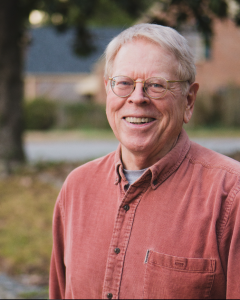 I am a sociocultural anthropologist who specializes in the study of inequalities of class, race and gender and power in urban settings (A Companion to Urban Anthropology, editor, Wiley-Blackwell, 2014); in class and state formation in Southeast Asia (“Getting by”: Class and State Formation among Chinese in Malaysia, Cornell U. Press, 2015); and in social movements around the commons in the U.S.and Europe. With Dorothy Holland, I am currently completing Food Activism in the Current Crises: Ecology, Inequality, and Industry Overreach on food activism in the southern U.S
I am a sociocultural anthropologist who specializes in the study of inequalities of class, race and gender and power in urban settings (A Companion to Urban Anthropology, editor, Wiley-Blackwell, 2014); in class and state formation in Southeast Asia (“Getting by”: Class and State Formation among Chinese in Malaysia, Cornell U. Press, 2015); and in social movements around the commons in the U.S.and Europe. With Dorothy Holland, I am currently completing Food Activism in the Current Crises: Ecology, Inequality, and Industry Overreach on food activism in the southern U.S
Karla Slocum
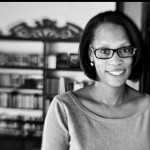 I am a cultural anthropologist interested in intersections of race, place, economy and history. My research focuses on rural communities noted for their histories, associated with people of African descent and undergoing economic and social transitions. My forthcoming book, Appealing Places: The Lure of Americas Twenty-First Century Black Towns, I explore the contemporary social, cultural and economic attraction of U.S. rural communities known as historic Black towns despite the perception that their significance is in the past. I am also developing a new project to visualize Black freedom in a digital map of US Black spaces.
I am a cultural anthropologist interested in intersections of race, place, economy and history. My research focuses on rural communities noted for their histories, associated with people of African descent and undergoing economic and social transitions. My forthcoming book, Appealing Places: The Lure of Americas Twenty-First Century Black Towns, I explore the contemporary social, cultural and economic attraction of U.S. rural communities known as historic Black towns despite the perception that their significance is in the past. I am also developing a new project to visualize Black freedom in a digital map of US Black spaces.
Angela Stuesse
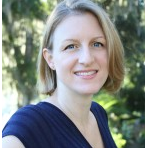 I am a cultural anthropologist broadly interested in social inequality in the Americas and specializing in methodologies of activist research. My scholarship focuses on neoliberal globalization, migration and citizenship, race and racism, intergroup relations, labor, and policing in the US and Latin America. Much of my work has explored how new Latinx migration to the US South has shaped and been shaped by the region’s racial hierarchies. I am also nurturing a growing scholarly interest in gender, political mobilization, and state repression in Equatorial Guinea, a former Spanish colony on the west coast of Central Africa. Learn more about me here.
I am a cultural anthropologist broadly interested in social inequality in the Americas and specializing in methodologies of activist research. My scholarship focuses on neoliberal globalization, migration and citizenship, race and racism, intergroup relations, labor, and policing in the US and Latin America. Much of my work has explored how new Latinx migration to the US South has shaped and been shaped by the region’s racial hierarchies. I am also nurturing a growing scholarly interest in gender, political mobilization, and state repression in Equatorial Guinea, a former Spanish colony on the west coast of Central Africa. Learn more about me here.
Affiliated Faculty
Maya Berry
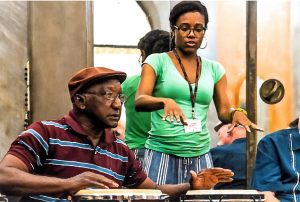 I am a sociocultural anthropologist who specializes in performance studies and African diaspora studies. My work uses a black feminist approach to understand racialized and gendered experience, social formations, performance practices, and political imaginaries. Using performance as an analytical lens, I focus on both the movements of body politics and the corporeal bodies that constitute those political movements. This allows for consideration of how political economy, racial formation, and embodiment all play a role in political praxis. An adjacent project critically interrogates the embodied aspects of conducting engaged research in post-colonial contexts, theorizing from the specificity of black women’s sexed and raced relationship to these sites of investigation.
I am a sociocultural anthropologist who specializes in performance studies and African diaspora studies. My work uses a black feminist approach to understand racialized and gendered experience, social formations, performance practices, and political imaginaries. Using performance as an analytical lens, I focus on both the movements of body politics and the corporeal bodies that constitute those political movements. This allows for consideration of how political economy, racial formation, and embodiment all play a role in political praxis. An adjacent project critically interrogates the embodied aspects of conducting engaged research in post-colonial contexts, theorizing from the specificity of black women’s sexed and raced relationship to these sites of investigation.
Kia Caldwell
I am a Professor of African, African-American, and Diaspora Studies and adjunct associate professor of anthropology. I have built an active research program that focuses on the intersections among gender, race, black feminism, health policy, and HIV/AIDS in Brazil and the United States, Women’s and Gender Studies, African American/African Diaspora Studies, Brazilian and Latin American Studies. My scholarly contributions in these areas highlight how the relationship between race and gender shapes black women’s experiences, as well as activism, in Brazil, the United States, and other areas of the Americas.
Graduate Students
Dayuma Alban
Jordan Davis
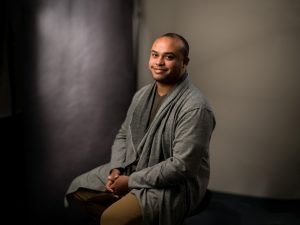 I am a sociocultural anthropologist from Topeka, Kansas. My research focuses on battle rap as a verbal, competitive black space. Specifically, I’m interested in how racial, ethnic, gendered, and geosocial realities are created and maintained locally via black normativity in the rapped verse, as well as through practices which index blackness both on- and off-stage. In studying this, I hope to understand one of the ways in which African Americans and other associated minority groups maintain control of their own lives and livelihoods in a society built to propagate white ways of being at the expense of colored realities.
I am a sociocultural anthropologist from Topeka, Kansas. My research focuses on battle rap as a verbal, competitive black space. Specifically, I’m interested in how racial, ethnic, gendered, and geosocial realities are created and maintained locally via black normativity in the rapped verse, as well as through practices which index blackness both on- and off-stage. In studying this, I hope to understand one of the ways in which African Americans and other associated minority groups maintain control of their own lives and livelihoods in a society built to propagate white ways of being at the expense of colored realities.
Isaura Godinez
Isa’s research interests center on examining the changes in the sociocultural and physical environment brought about by international migration and how these are reflected in human biology and health. Her investigations have focused on migration among the Purepecha, an indigenous Mexican population. Her work departs from Margaret Lock’s idea that human biological variation stems from the continuous exchange between the body and the environment rather than being due to racialized difference. In addition to her dissertation work, Isa is currently working with the Building Integrated Communities Initiative housed within the Latino Migration Project at UNC.
Molly Green
Sugandh Gupta
Julio Gutierrez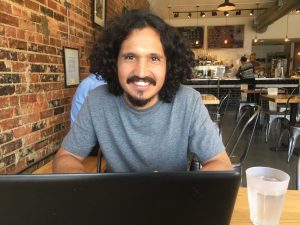
I am a sociocultural anthropologist from El Salvador. I am broadly interested in issues related to the political economy and ecology of Central America. My current research focuses on the business and political networks behind urban development in the Salvadoran region of El Bálsamo, La Libertad. I study the implications of real estate markets regarding issues around state corporatization, spatial segregation, land use and water politics.
Ampson Hagan
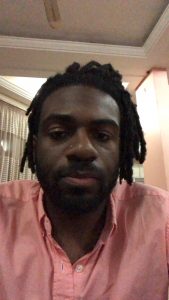 Ampson Hagan is a PhD candidate in sociocultural anthropology, currently doing fieldwork in Niger. He studies how idioms and metaphors of health-related deservingness (who deserves care vs. who does not) affect trans-Saharan migrants’ subjectivities of race and health within the rubric of humanitarian care. This is a multi-sited project, conducted on both sides of the Niger-Algeria border. His research is currently supported by the Fulbright-Hays DDRA award and the UNC Graduate School.
Ampson Hagan is a PhD candidate in sociocultural anthropology, currently doing fieldwork in Niger. He studies how idioms and metaphors of health-related deservingness (who deserves care vs. who does not) affect trans-Saharan migrants’ subjectivities of race and health within the rubric of humanitarian care. This is a multi-sited project, conducted on both sides of the Niger-Algeria border. His research is currently supported by the Fulbright-Hays DDRA award and the UNC Graduate School.
Anusha Hariharan
Maja Jeranko
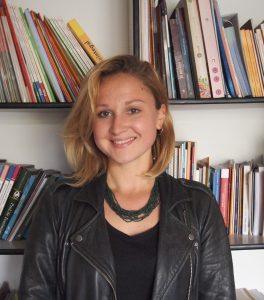 I am a sociocultural anthropologist from Slovenia. Broadly, I am interested in how gender, ethno-racial identity, bodies and gender-based violence intersect and interact with the changing social and physical landscapes in coastal Ecuador that was devastated by the April 16, 2016 earthquake. I employ a gender lens to investigate how communities adapt to the newly-built housing settlements in the province of Manabí. I am also interested in design and how we can apply feminist methodologies to carry out collaborative and context-sensitive research, learn from different socio-cultural worlds and forge transnational bonds of solidarity.
I am a sociocultural anthropologist from Slovenia. Broadly, I am interested in how gender, ethno-racial identity, bodies and gender-based violence intersect and interact with the changing social and physical landscapes in coastal Ecuador that was devastated by the April 16, 2016 earthquake. I employ a gender lens to investigate how communities adapt to the newly-built housing settlements in the province of Manabí. I am also interested in design and how we can apply feminist methodologies to carry out collaborative and context-sensitive research, learn from different socio-cultural worlds and forge transnational bonds of solidarity.
Ana Ramirez
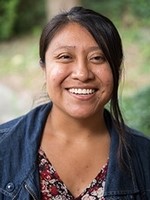 I am a PhD student in sociocultural anthropology. I identify as U.S.-born Maya-Akateka from Guatemala. Broadly, my interests are in Maya cultural and linguistical revitalization, community-based research, transnationalism, youth migration, youth identity, and intergenerational leadership. My research interests stem from more than ten years of experience working in different capacities with non-profits, community organizations and schools that work with Maya communities in the United States and in the western highlands of Guatemala. My current research focuses on Maya communities in the United States, specifically in North Carolina. My work is supported by the Royster Fellowship, the UNC Graduate Certificate for Participatory Research (GCPR), the Initiative for Minority Excellence (IME), and the Ford Predoctoral Fellowship.
I am a PhD student in sociocultural anthropology. I identify as U.S.-born Maya-Akateka from Guatemala. Broadly, my interests are in Maya cultural and linguistical revitalization, community-based research, transnationalism, youth migration, youth identity, and intergenerational leadership. My research interests stem from more than ten years of experience working in different capacities with non-profits, community organizations and schools that work with Maya communities in the United States and in the western highlands of Guatemala. My current research focuses on Maya communities in the United States, specifically in North Carolina. My work is supported by the Royster Fellowship, the UNC Graduate Certificate for Participatory Research (GCPR), the Initiative for Minority Excellence (IME), and the Ford Predoctoral Fellowship.
Francesca Sorbara
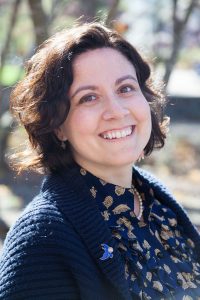 I am a sociocultural anthropologist from Italy, and I have lived and worked as a Human Rights advocate in South America, for a decade. My current research in Colombia explores how the emergent socio-legal paradigm of the Rights of Nature translates the claims of grassroots indigenous and environmental activist movements in Colombia, and how these socio-natural rights are being defended and enforced in the present post-conflict conjuncture.
I am a sociocultural anthropologist from Italy, and I have lived and worked as a Human Rights advocate in South America, for a decade. My current research in Colombia explores how the emergent socio-legal paradigm of the Rights of Nature translates the claims of grassroots indigenous and environmental activist movements in Colombia, and how these socio-natural rights are being defended and enforced in the present post-conflict conjuncture.
Lucía Stavig
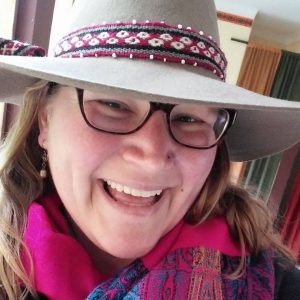 I am a PhD student in sociocultural anthropology working with the people of the Southern Andes of Peru. I am interested in issues of indigeneity, gender, and human rights. My current project focuses on the forced sterilization of thousands of indigenous women in the 1990s. Twenty years later, many of these women remain quite ill. For many, their community or ayllu is constituted not only by human, but by the relations between people, plants, animals, and Earth Beings (mountains, lakes, rivers, caves that form part of kind relations). I seek to understand what practices these women are using to heal in more-than-human worlds (through traditional healing practices), as well as and across worlds (such as through the law).
I am a PhD student in sociocultural anthropology working with the people of the Southern Andes of Peru. I am interested in issues of indigeneity, gender, and human rights. My current project focuses on the forced sterilization of thousands of indigenous women in the 1990s. Twenty years later, many of these women remain quite ill. For many, their community or ayllu is constituted not only by human, but by the relations between people, plants, animals, and Earth Beings (mountains, lakes, rivers, caves that form part of kind relations). I seek to understand what practices these women are using to heal in more-than-human worlds (through traditional healing practices), as well as and across worlds (such as through the law).
Julio Villa-Palomino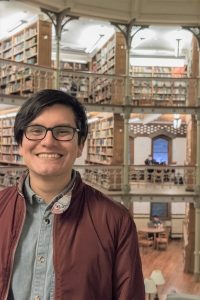
I am sociocultural/medical anthropologist. My interests are situated at the intersections of mental health, gender and race. My current research focuses on psychiatry, the state, and the current community mental health reform in Peru. I study how the community mental health model can be conceptualized as an extension of the state and psychiatric power. At the same time, I want to explore how this reform generates and mobilizes new anxieties and forms of compliance within the population.
